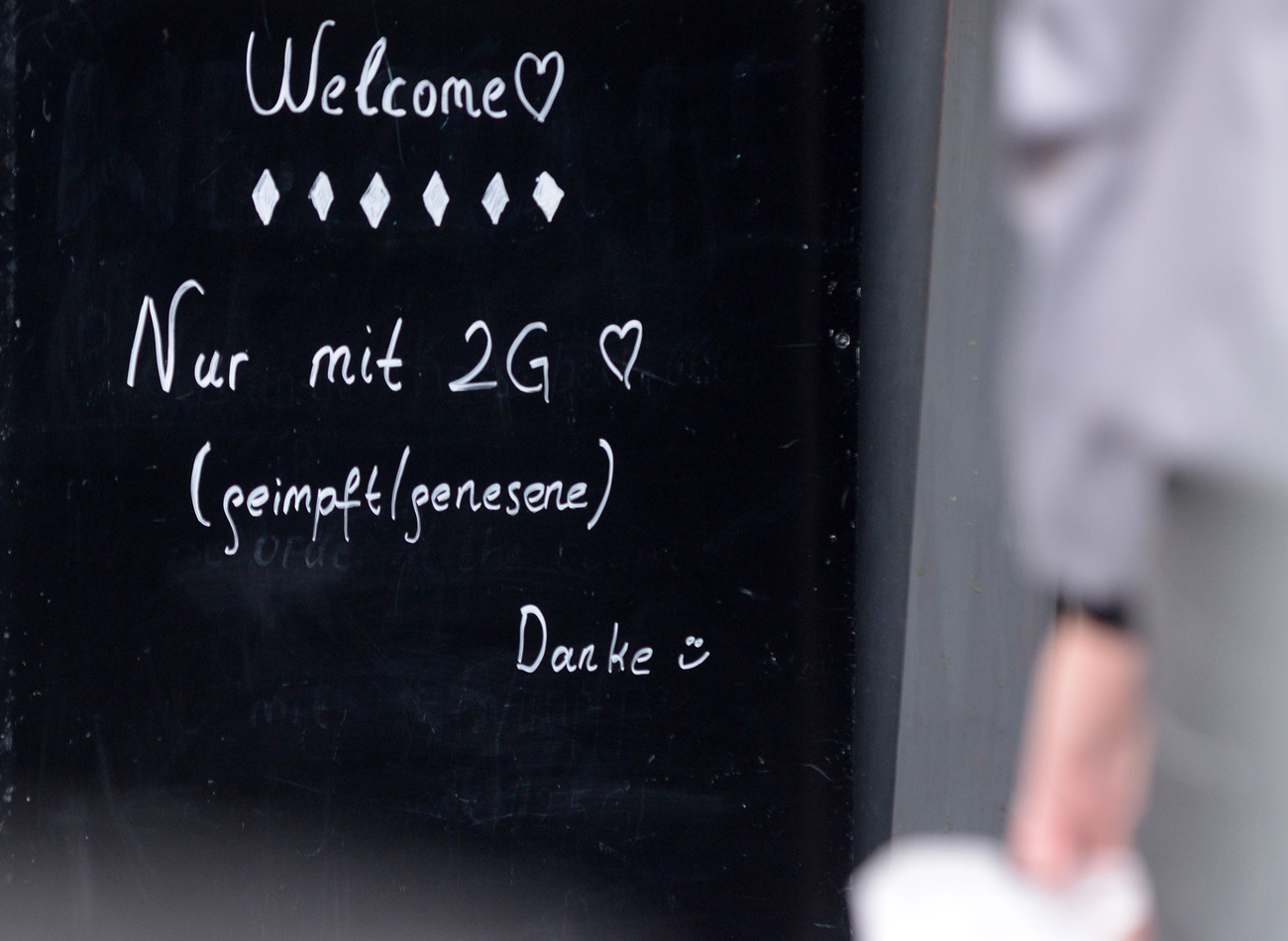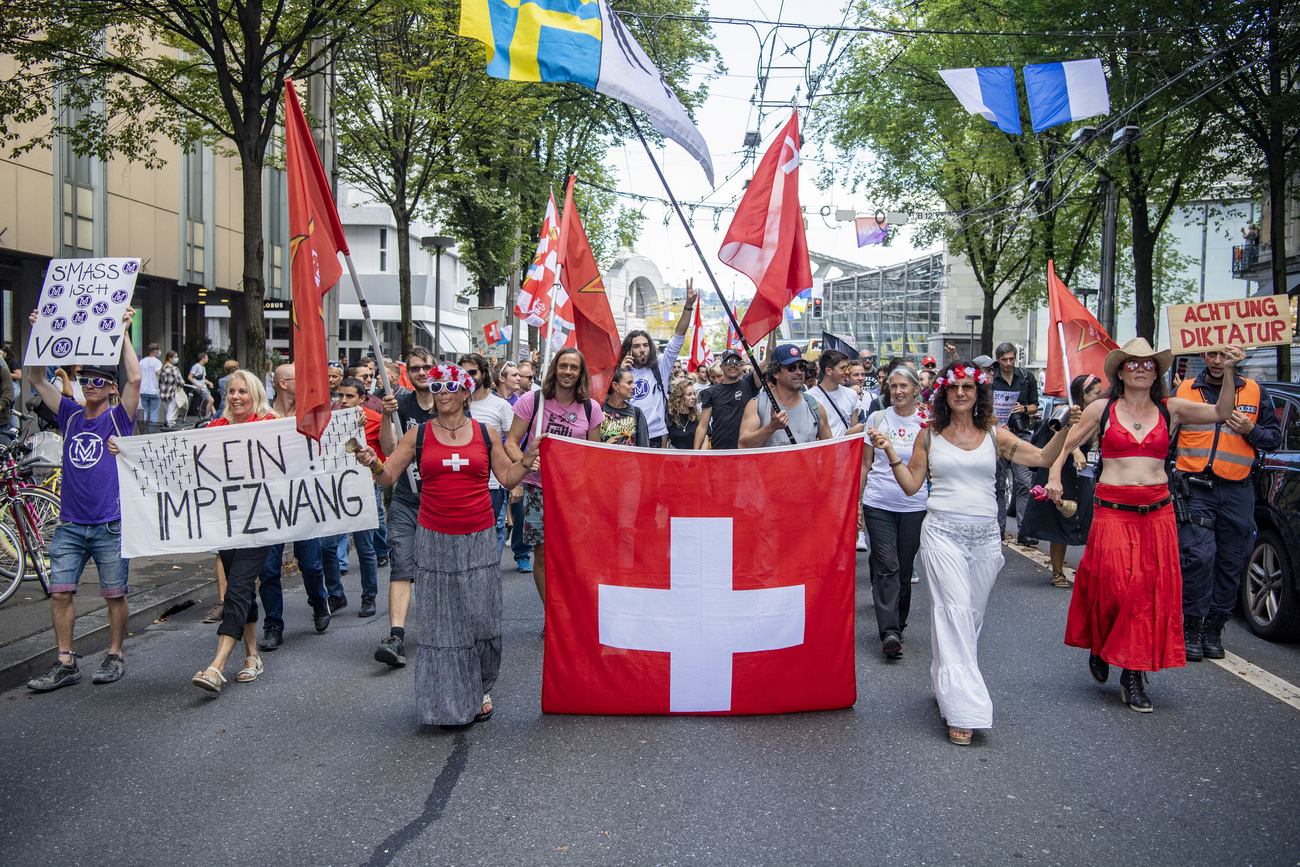
Epidemiologists sceptical over stricter Covid certificate rules

Several leading Swiss epidemiologists have expressed reservations about tightening the scope of the Covid certificate, as has happened in neighbouring Austria.
The Swiss Covid certificate, compulsory since September 13 for admission to restaurants, gyms, cinemas, and big cultural and sporting events, limits entry to those who have been vaccinated, tested or recovered from Covid-19 (3G rule as it’s known in German).
The 2G rule, effective in Covid-hit Austria from November 8, limits entry to (for example) restaurants, hotels and hairdressers to the fully vaccinated and recently recovered only. The rule has also been applied to a region of Germany.
In general, 2G provided more safety because the risk of infection was weaker, noted epidemiologist Marcel Tanner in an interview in the Schweiz am WochenendeExternal link newspaper on Saturday. But the president of the Swiss Academy of Arts and Sciences added that, “from a public health perspective, 3G is better for society than 2G”.
“Switzerland has always tried in this pandemic to allow the fabric of society to breathe and has, for example, not taken the path of closing schools like in Germany or having tough lockdowns,” Tanner said.
Milo Puhan, director of the Epidemiology, Biostatics and Prevention Institute at the University of Zurich, also had some reservations. He pointed out the advantage in theory of 2G, but added that more solid scientific data was needed to assess the effectiveness of the rule. Many factors were in play, and in the end politicians would have to decide, he said in the article.
Focus
But for Marcel Salathé, from the Federal Institute of Technology Lausanne (EPFL), it would be better to focus discussion on other important factors like increasing the vaccination rate of the population (currently 64% and lagging behind many other European countries) and speeding up booster vaccinations. These are the core elements that will get us through the winter without overloading the health system, he said.
Virus evolution expert Richard Neher, of the University of Basel, was more open to 2G, as current Swiss measures against the coronavirus were not enough to stop the rise in Covid cases. “Epidemiologically, 2G makes sense, especially in combination with a vaccination, booster and test campaign,” he told Schweiz am Wochenende.
The views come at a time of great debate about the Covid certificate in Switzerland and a week-long push to improve the vaccination rate.
There have been regular demonstrations in the country against the certificate and other anti-coronavirus measures introduced by the government – also on Saturday in Zurich and Geneva. On November 28, voters will have a final say on the certificate’s future through a nationwide vote on the country’s Covid-19 law.
The number of new coronavirus infections stood at almost 4,000 on Friday.

More
Fate of Covid certificate to be decided at the ballot box

In compliance with the JTI standards
More: SWI swissinfo.ch certified by the Journalism Trust Initiative





























You can find an overview of ongoing debates with our journalists here . Please join us!
If you want to start a conversation about a topic raised in this article or want to report factual errors, email us at english@swissinfo.ch.